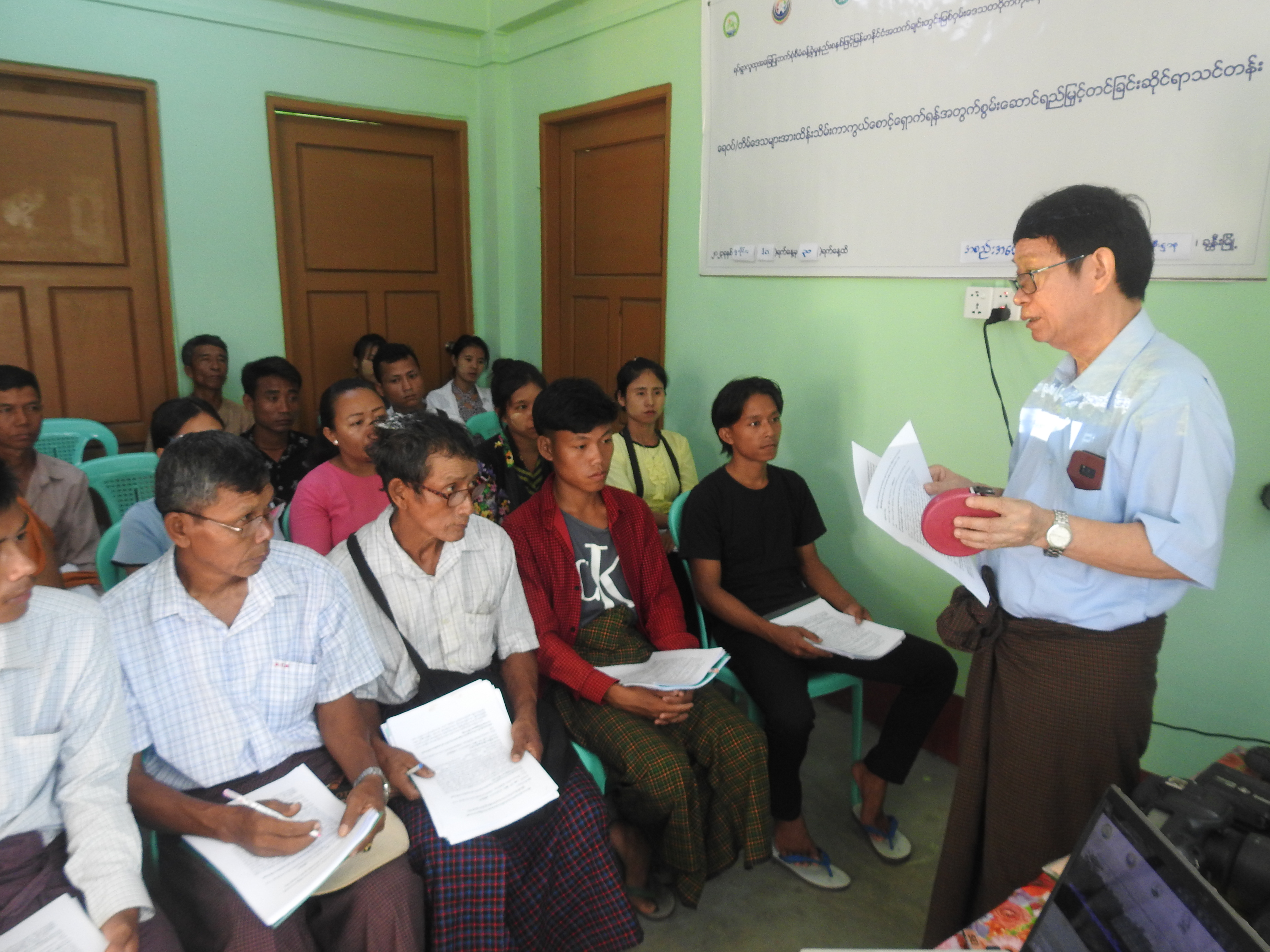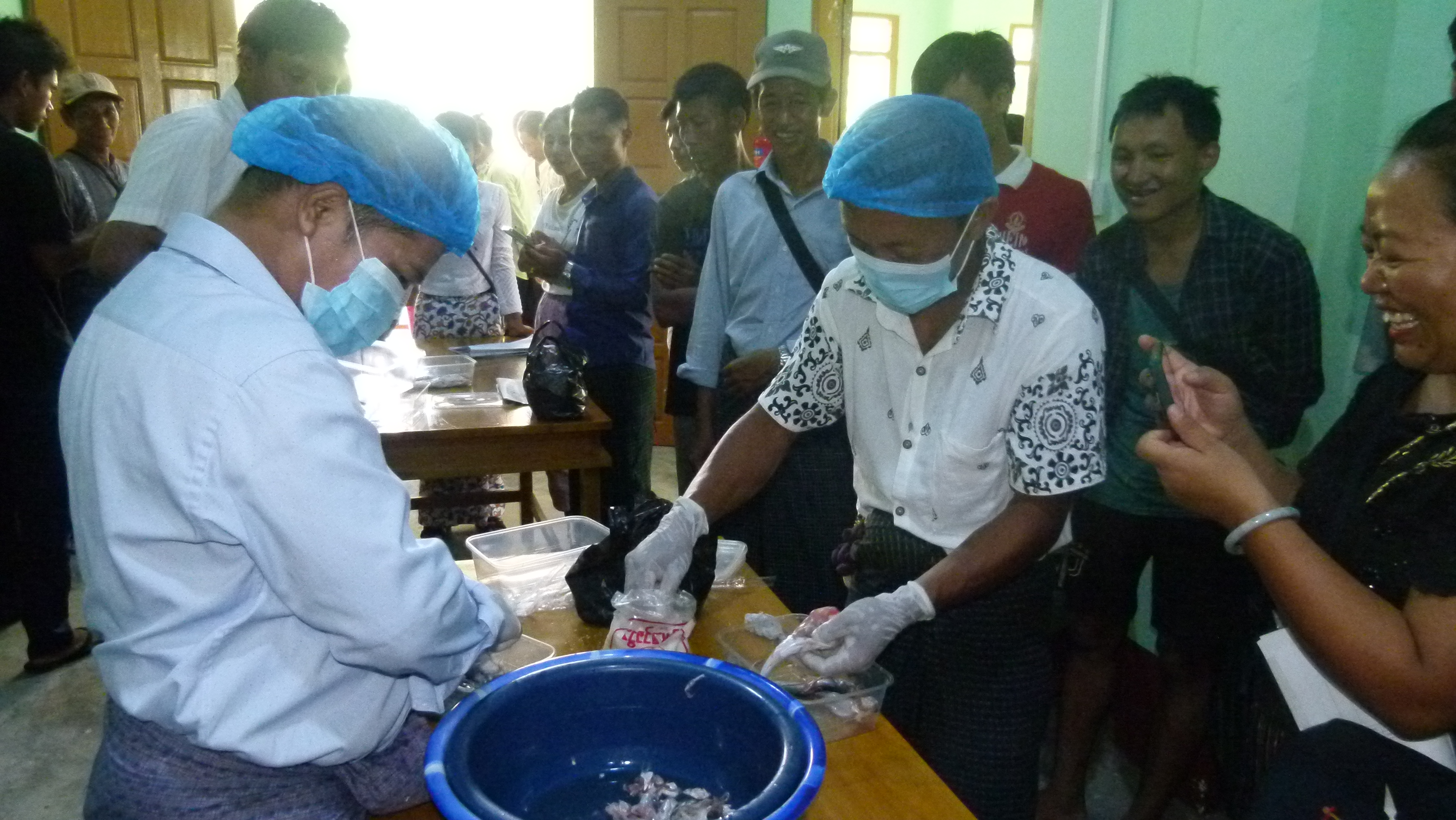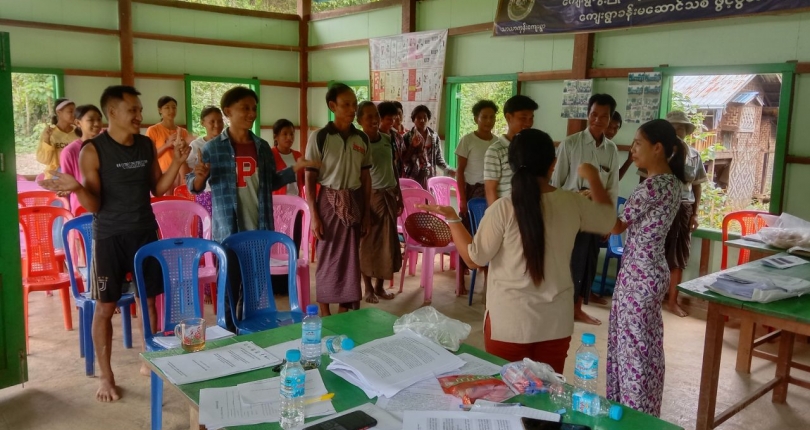Empowering communities in the Upper Chindwin Basin of Myanmar on wetlands conservation
SEI's program aims to increase further the community's understanding and appreciation of watershed and wetlands conservation.
Many communities rely heavily on wetland resources and ecosystem services for their daily lives, particularly in the four priority villages of the Upper Chindwin Basin in Myanmar.
Due to limited options for other business and job opportunities, some families depend solely on fishing and farming in the wetlands. Consequently, there is a need for increased awareness and knowledge about the importance of wetlands and the necessity for their sustainable existence within the community.
To promote awareness and encourage more sustainable approaches to watershed and wetlands conservation, biodiversity, and ecosystem sustenance, SEI initiated a training program in the Upper Chindwin Basin to empower the local communities and encourage their participation in conservation activities.
The program aims to increase further the community's understanding and appreciation of watershed and wetlands conservation and sustainable management. This training program is a pivotal component of SEI’s community-based approach to conserving priority wetlands and biodiversity, including endangered species, and transitioning to alternative livelihoods.

Conservation of local resources
The first training of the series hosted from July 28th to 31st, 2023, in collaboration with Myanmar Environment Institute (MEI), focused on enhancing the knowledge, skills, and abilities of the community, especially the members of the village working committee (VWC) formed under the project, local Civil Society Organization (CSO), Naga Social Network Organization (NSNO), and the Environmental Conservation Department (ECD). The training focused on valuing watershed and wetlands conservation and management strategies. Led by local experts from MEI, the training included case studies, practical exercises on field data collection, and an in-depth understanding of Wetlands of International Importance (Ramsar sites) and criteria.
The second training session of the series focused on sustainable fisheries practices, covering topics like fish product processing, quality control, small-scale aquaculture, fish farming, and environmentally friendly inland fisheries development. Practical demonstrations were a key component, which equipped participants with knowledge and skills to pursue and implement sustainable fishing methods and enhance the production of value-added aquatic products.
Both these training courses were well-received, with 64 participants in total, with good participation from women and youth groups. Most participants expressed the view that the training sessions enhanced their awareness and improved their understanding of wetlands and the need to conserve them. The community's eagerness to conserve wetlands for sustainable livelihoods and maintain biodiversity and ecosystems was evident. Moreover, participants gained valuable skills, such as fish processing, that could contribute to increased incomes and food security.

Traditional knowledge to protect and conserve wetland ecosystems is being lost to technology, and younger generations are undervaluing them, degrading them; this training has emphasized their value and significance in the long run.
said Mr. Aye Ko from Hman Pin village.
The training I received has equipped me with the knowledge and skills to make two types of fish products, which has alleviated the burden of buying from the market and given me the ability to sell and earn income.
said Ms. Nyein Nyein Thin, a member of Village Working Committee from Maing Naung village.
The success of these training programs emphasized the importance of ongoing awareness and applied training initiatives to support sustainable land and water management, transition to livelihoods less dependent on wetland resources, and ensure long-term biodiversity and ecosystem conservation.
Fostering community interest and willingness is key to establishing community-led management for wetlands conservation in Myanmar and the rest of the Mekong Region.
For more information about this project, please visit the link below:
- Community-based integrated catchment management to conserve the Upper Chindwin River Basin
*Photo 1: Group work activities during a training on wetlands conservation at village level. Photo: Naga Social Network Organization (NSNO).
*Photo 2: Knowledge sharing of wetlands conservation during a training on wetlands conservation at township level. Photo: Myanmar Environment Institute (MEI).
*Photo 3: Practical demonstration for pickled fish and salted fish during a training on fish farming and aquaculture. Photo: Myanmar Environment Institute (MEI).



 By
By

 Read more about SUMERNET
Read more about SUMERNET
